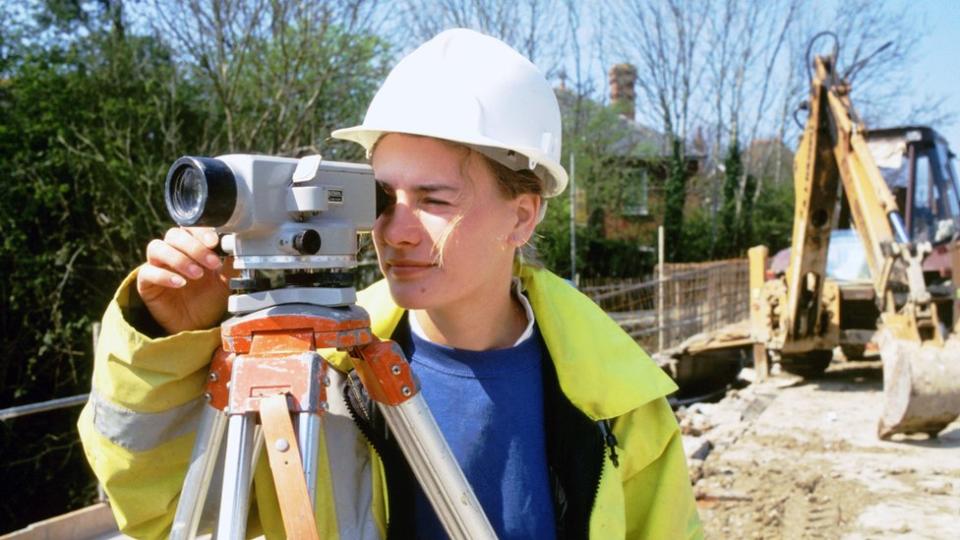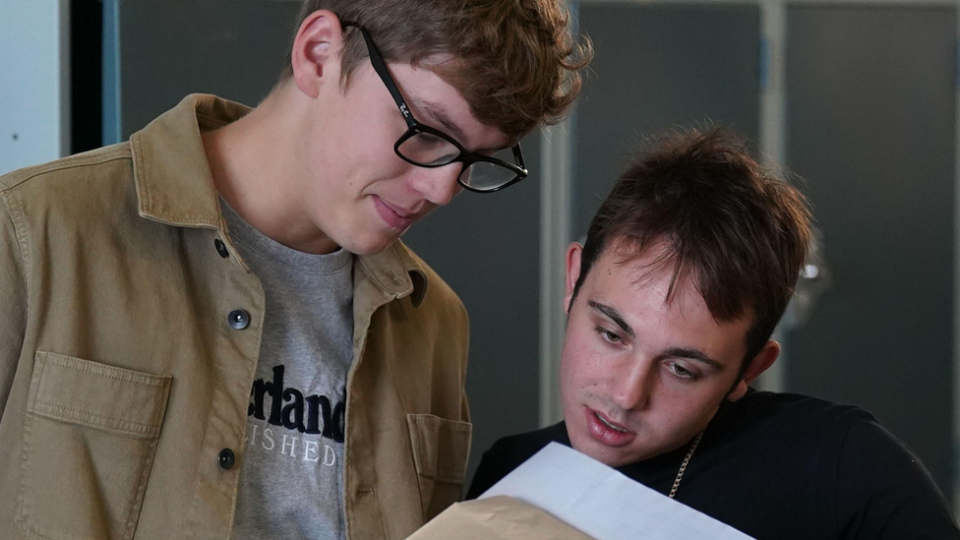BTecs 2024: What are they and how are they graded?

BTec exams have started for hundreds of thousands of students in the UK.
The vocational qualification is aimed at people interested in working in a particular industry, such as engineering, hospitality or childcare.
What are BTec Firsts and BTec Nationals?
A BTec - which stand for the Business and Technology Education Council - is a practical qualification.
Courses are assessed through exams, regular coursework and projects - and often, placements.
BTec Firsts are Level 2 qualifications - meaning they're equivalent to GCSEs. Students often take a mixture of the two.
They can be helpful for people trying to get into further education colleges.
BTec Nationals are Level 3 qualifications, so can be taken alongside or instead of A-levels.
They are studied over one or two years.
Research suggests one in four students use them as a route into university, while others gain occupation-specific skills and go straight into employment.

How are BTecs graded?
BTecs are graded on a scale:
Starred Distinction/Distinction Star (D*)
Distinction (D)
Merit (M)
Pass (P)
Some BTecs are worth two or three A-levels.
Students normally receive their results on the same days as A-level and GCSE students, which this year will be 15 and 22 August. But some receive them before this.
Who takes BTecs?
There are approximately 280,000 students studying at least one Level 3 applied general qualification, according to the Sixth Form College Association.
A further 200,000 are estimated to sit BTec Firsts and other BTec qualifications.
Health and social care and applied science are among the most popular BTecs.
Other subjects include construction, electrical engineering and art and design.
BTec Nationals can be sat by any age group - in fact, most are taken by those over the age of 22, as they develop practical career skills.
They are particularly popular among white working-class students, according to research by the Social Market Foundation think tank.
Other vocational courses are available in the UK, including National Vocational Qualifications (NVQs), TechBacs, Cambridge Technicals and Scottish Vocational Qualifications (SVQs).

How are BTecs changing?
In 2020, there were more than 12,000 vocational qualifications at all levels, offered by more than 150 awarding bodies, according to Ofqual, which oversees qualifications in England.
The Department for Education wants to streamline post-16 education.
So, from August, many BTecs and other Level 3 courses will be defunded to make way for a new qualification known as T-levels. However, MPs on the Education Select Committee say the plans risk "constricting student choice".
The rollout of T-levels has begun, but there have been some delays.
Education Secretary Gillian Keegan says there would be "at least one year" between the introduction of a T-level and the removal of funding for similar qualifications.
The government has separately announced plans for an Advanced British Standard, which would eventually replace both A-levels and T-levels in England.

